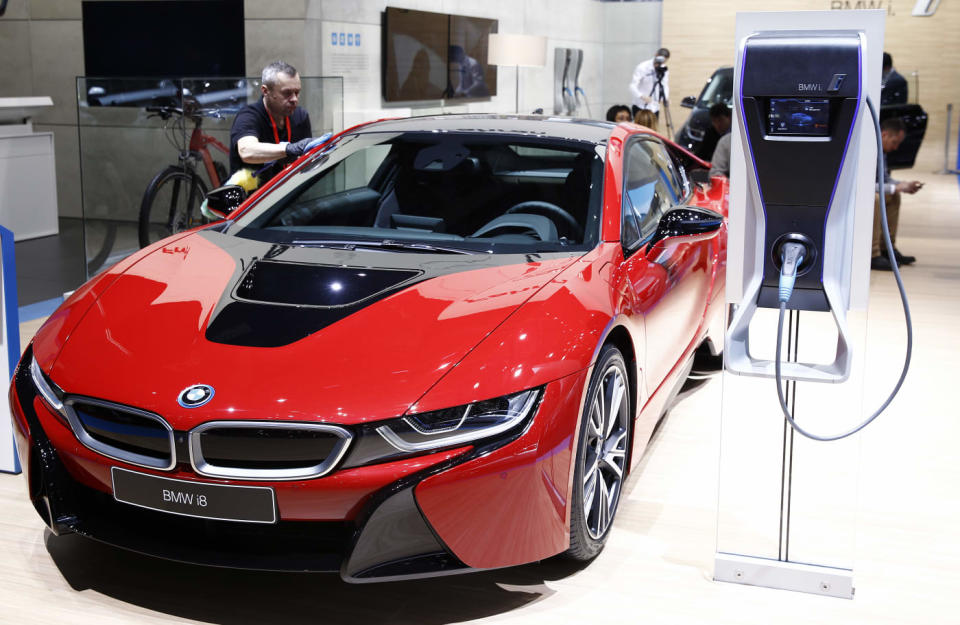BMW's key EV executives depart for Chinese startup
The automaker delayed its next-gen EV, but will reveal a longer-range i3 this year.

Several key executives behind BMW's well-regarded i8 and i3 electric vehicles have been hired away by a little-known China-based company called Future Mobility. The German automaker confirmed to Engadget that "BMW i" division head designer Benoit Jacob, head of product management Henrik Wenders and powertrain developer Dirk Abendroth have departed. They'll be joining Carsten Breitfeld, who left BMW last month to become CEO of Future Mobility Corp. The Chinese startup is funded in part by Tencent Holdings, a $200 billion company with divisions ranging from gaming to messaging.
BMW launched its $40,000 city-oriented i3 vehicle and $135,000 i8 EV supercar in 2011, both to general acclaim. Sales for the vehicles have been respectable in the EV category, as the company sold 24,000 i3 models in 2015. However, the company delayed plans to introduce a new model called the i NEXT from next year to at least 2020.
At the same time, rival Tesla has sold 50,000 copies of its Model S, a $76,500 vehicle. In addition, it has so far pre-sold nearly 400,000 copies of the new Model 3, a car that won't hit roads until at least the end of 2017. If just half of the folks who placed orders take delivery, that would put the Model 3 in the top ten best-selling cars in the US, ahead of mainstream vehicles like the Hyundai Sonata and Ford Focus.

Despite the departures, BMW spokesman Paloma Brunckhorst tells Engadget that it's "totally convinced [about BMW i] and that the electric car is the future." Later this year, the company will reveal a new BMW i3 model with 50 percent more battery capacity. That would boost the vehicle's range to 120 to 150 miles (without the gas-powered range extender), enough to make it practical for short trips outside of cities. Tesla's Model 3 and the Chevy Bolt both have claimed ranges of around 200 miles.
BMW will also launch an i8 Roadster in 2018, and the aforementioned i NEXT vehicle, "a larger, electrically-powered BMW i model ... [at] the beginning of the next decade," says Brunckhorst. New tech in the model will include "autonomous driving, digital connectivity, intelligent light-weight construction and the next generation of electric mobility." In addition, the company will have five hybrid-electric vehicles under its "iPerformance" banner by summer of 2016.
If accurate, the departure is no doubt a blow to BMW. However, it's certainly not unusual in the EV industry -- a key Tesla executive reportedly left for Apple recently. Tesla has called Apple -- which is reportedly developing its own EV -- the "Tesla graveyard" for hiring its unwanted engineers. As for China's Future Mobility, it will do EV research and development in Shenzhen, China, with European divisions responsible for the design, powertrain, self-driving system and other features. The company plans to build a premium "internet smart electric car ... with Chinese roots and a global reach," according to China Daily.
